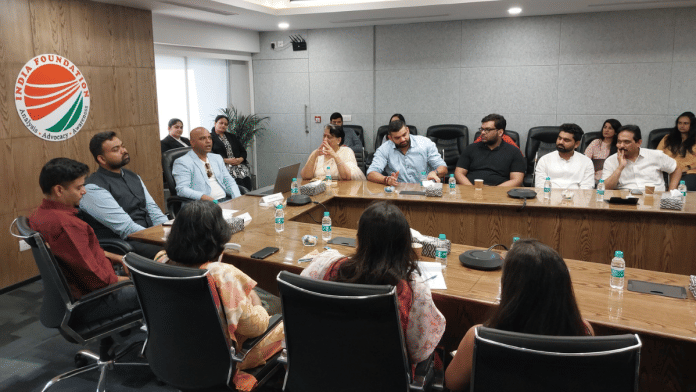New Delhi: The past week turned into a moral reckoning for Indian filmmakers and critics as they spoke about the controversy over Neeraj Ghaywan’s Made in Heaven, an Amazon Prime Video series. While the online community hotly debated Indian writer Yashica Dutt’s claim to credit for an episode, there was an hour-long discourse on ‘equality, diversity, and inclusivity’ in Indian cinema at a think-tank in Delhi.
Academic and filmmaker Vikrant Kishore, who is based in Melbourne, attended the discussion on Indian cinema at India Foundation. He is currently directing a web series on caste discrimination in Australia.
He seems to be on a mission to bring about a change by raising awareness about caste-based discrimination in cinema in India and abroad.
“During my PhD, I scanned through libraries for literature on Indian cinema, but as opposed to stacks and stacks of books on Iranian, Japanese, Korean, and of course, European cinema, I [only] found a handful,” said Kishore.
Caste outside India
Kishore’s observation about the lack of awareness around caste discrimination outside India comes at a time when Pallavi Menke, the American Dalit protagonist in the contentious Made in Heaven episode, says that nobody cares about her caste in America. Played by Radhika Apte, Menke is shown to be battling social stigma in the US, being a woman of colour.
Writer Sumit Baudh, who has been credited as the inspiration behind the episode, also concurred on X (formerly Twitter).
Baudh said that Menke propagates the common misconception that American society is caste-blind — the character is shown to be unaware of campaigns for recognition of caste as a protected category in the US.
“Australia is no exception,” added Kishore.
Kishore agreed with the audience that Dutt should be compensated while steering clear from calling out Ghaywan.
Indian cinema isn’t just Bollywood
Kishore’s plans to bring about a change may be well-intentioned, but the filmmaker’s understanding of Indian cinema seemed largely restricted to Hindi films.
In a 77-minute discussion, he traced the history of Hindi cinema, conflating it as “Indian cinema” — from the ’90s to the 2000s.
“When we talk about the representation of marginalised, we still talk about Achhut Kannya (1936),” he said. Directed by Franz Osten, the romantic tragedy showed a Brahmin man and a ‘lower’ caste woman succumbing to prejudice and societal pressure.
The focus on caste representation in Hindi cinema was shifted only when an audience member brought up the significant work by South Indian filmmakers Pa Ranjith, Vetrimaaran, and Mari Selvaraj.
The audience also discussed other stereotypes based on religion, fat-shaming, and ethnicity in Indian cinema.
About a Made in Heaven episode on polygamy among Muslims, Kishore weighed in.
“Seeing the otherisation of Muslims on screen is as unfortunate as seeing the misrepresentation of other marginalised groups,” he said, adding that he advocates for humanity above everything else.
(Edited by Humra Laeeq)






